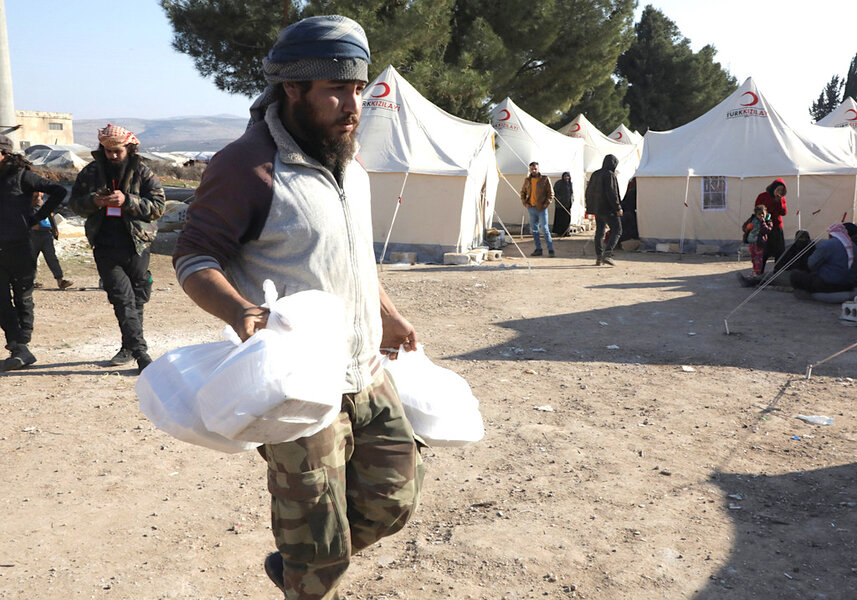Earthquake aid as a peacemaker
Loading...
Most wars are won by military advantage. Some are determined by something else. In Syria, after 12 years of a civil conflict, compassion toward the survivors of the Feb. 6 earthquake could provide a turning point that guns have not.
On Monday, President Bashar al-Assad agreed to open two border crossings from Turkey and allow humanitarian aid to flow into northern areas controlled by anti-regime rebels. His concession marks a breakthrough in the relief effort. Nearly 9 million people lack food, water, and shelter following the massive tremor. Truckloads of critical supplies are now reaching areas long isolated and pummeled by war.
The United Nations had to break through persistent resistance from the Assad regime and its principal backer, Russia, to keep just one aid corridor open. Now there are three. While the Assad regime may exploit its concession to gain international recognition, the aid flow could also help change the dynamics of diplomacy in the region.
Since the start of the civil war – triggered by peaceful pro-democracy protests in 2011 – the government has sealed off northern Syria and treated its people there as enemies. Now Mr. Assad’s gesture on aid relief shows that even the most hardened dictators are not immune to the moral imperative to aid and protect innocent life.
A similar approach recently worked in nudging Russian President Vladimir Putin to back, however grudgingly, the resumption of grain and fertilizer shipments from Ukraine to countries facing famine. In Ethiopia’s civil war, the U.N. persuaded the regime to agree to a peace deal in November to provide relief in war-ravaged Tigray province.
Just a few weeks ago, it would have been hard to imagine the Syrian regime making this kind of statement through its ambassador to the U.N. “Syria supports the entry of humanitarian aid into the region through all possible cross points whatever – from inside Syria, or across the borders – for the period of three months to ensure the delivery of humanitarian aid to our people in ... northwestern Syria,” said envoy Bassam Sabbagh on Monday.
When a tragedy like an earthquake strikes, the suffering can soften hearts, temporarily curbing differences and leading to enough trust to make compromise possible.
The opening of aid corridors in Syria may be temporary. But it shows that aggression is an uncertain force. It ultimately backs down to humanity’s demand to aid and uplift.







